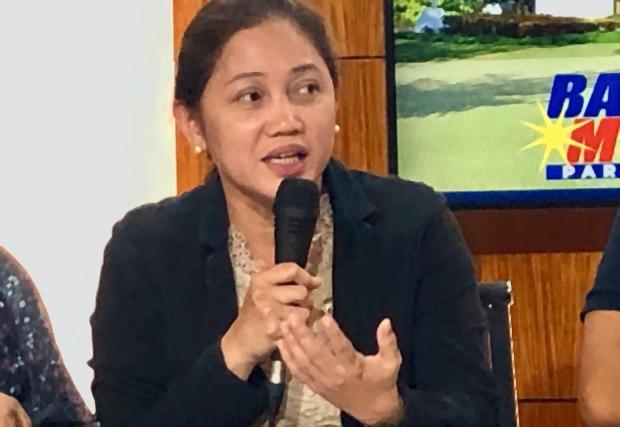MANILA, Philippines — There is a new variant of the illegal pork barrel that was included in the government’s proposed P5.024-trillion budget for 2022 and this could be used for next year’s elections, an oppositionist Rep. Arlene Brosas of Gabriela warned on Sunday.
Brosas found P10 billion allocated to an item called Growth Equity Fund (GEF) under the Local Government Support Fund that falls within the juridical definition of pork barrel that the Supreme Court had declared illegal.
The Duterte administration, Brosas said, allocated P10 billion to the GEF — a fund of the executive department — for the use of unidentified local governments for unspecified projects.
“This is a lump-sum allocation that is open to abuse and politicking if the [local governments] will not be identified,” she said, alluding to the Supreme Court’s definition of pork barrel in its landmark 2019 decision on Belgica versus Executive Secretary.
The Supreme Court ruling, written by Associate Justice Estela Perlas-Bernabe, reads: “Pork barrel refers to an appropriation of government spending meant for localized projects and secured solely or primarily to bring money to a representative’s district.”
Unconstitutional
“In the Philippines,” the decision continues, “pork barrel has been commonly referred to as lump sum, discretionary funds of members of the legislature, although … its usage would evolve in reference to certain funds of the executive.”
All members of the high court concurred with Bernabe’s position (14-0), except for then-Associate Justice Presbitero Velasco Jr., the father of incumbent Speaker Lord Allan Velasco.
The decision consequently declared as unconstitutional the controversial Priority Development Assistance Fund of lawmakers and outlawed the president’s use of the Malampaya Fund and Presidential Social Fund beyond their original purposes.
Election fund
“This P10-billion Growth Equity Funds looks more like Greater Election Fund, as it can be arbitrarily used to ensure votes for Duterte and his top bets in the 2022 elections. This is a new pork barrel variant,” Brosas argued.
The Duterte administration used another landmark Supreme Court ruling to justify the P10-billion GEF.
Brosas said the GEF was meant to “help local governments in the implementation of the Mandanas ruling next year,” referring to the Supreme Court’s 2018 decision that local governments’ share in national revenue must be computed based on all national taxes and not just internal revenue taxes as previously done.
The Mandanas ruling is named after Batangas Gov. Hermilando Mandanas, who was among the appellants in one of two petitions.
It would give local governments a historic increase in funds, but the smallest towns will only get a proportionally small share compared to larger local governments.
On June 1, President Rodrigo Duterte issued Executive Order No. 138 creating a “committee on devolution” that will again give him a hand in the distribution of funds that the high court said should be remitted to local governments quarterly and automatically.
But while some economists see merit in EO 138, the World Bank (WB) has warned that local governments may just waste the funds because even the national government itself has not been able to spend its own allotted funds.
“Our analysis shows that the significant expansion of [local government] budgets in 2022 may result in greater underspending, unless the ability of [local governments] to effectively spend the additional resources improves,” WB economist Kevin Cruz said in an online forum last June.
